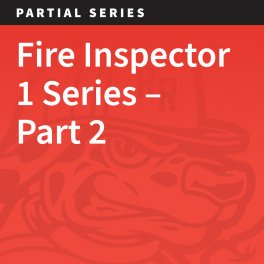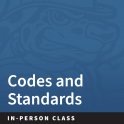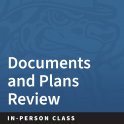Fire Inspector 1 Series - Part 2
Fire Inspector 1 Series – Part 2 – Course Description
Ricky Rescue Training Academy’s “Fire Inspector 1 Series – Part 2” is a 90‑hour in‑person course with continuous enrollment that fulfills the second half of the Florida State Fire College pre‑certification requirements for Fire Inspector I. This series includes Codes and Standards (ATPC1510) and Construction Documents and Plans Review (ATPC2521). Both courses align with NFPA 1031 Job Performance Requirements and provide essential training in fire code compliance and plan examination.
Detailed Course Content
1. Codes and Standards (ATPC1510)
A 45‑hour in‑person course delivering 45 CEUs, focusing on the application of Florida and national fire codes to real‑world inspection and enforcement.
Key learning outcomes:
- Code research: Learn to navigate the Florida Fire Prevention Code, NFPA 1, NFPA 101, Florida Statutes 633, and FAC 69A.
- Legal framework: Understand statutory authority, adoption processes, and inspector responsibilities.
- Practical application: Apply codes accurately during plan reviews and on‑site inspections.
- Hazard recognition: Identify code violations and recommend corrective measures to ensure compliance.
- Assignments: Quizzes (20 pts), group exercises (20 pts), final group project (20 pts), and written exam (40 pts); minimum passing score 70%.
- Attendance: Maximum 10% excused absence permitted (4.5 hours).
- NFPA alignment: Meets NFPA 1031 JPRs (Sections 4.2–4.4, 2014 Edition).
Suggested textbooks: Florida Fire Prevention Code, 7th Ed.; NFPA 1; NFPA 101; Florida Statutes Chapter 633; Florida Administrative Code 69A
2. Construction Documents and Plans Review (ATPC2521)
A 45‑hour in‑person course awarding 45 CEUs, preparing students to interpret, evaluate, and verify construction documents for compliance with fire codes and standards.
Key learning outcomes:
- Plan interpretation: Read and evaluate architectural, mechanical, electrical, and fire protection drawings.
- Application of codes: Ensure submittals meet Florida fire codes and NFPA standards before approval.
- Technical literacy: Recognize standard symbols, projections, and layout conventions in construction documents.
- Fire system evaluation: Review suppression, detection, and alarm system designs for readiness and compliance.
- Assignments: Quizzes (20%), individual exercises (20%), group project (30%), and final exam (30%); passing score 70%.
- Attendance: Maximum 10% excused absence permitted (4.5 hours).
- NFPA alignment: Meets NFPA 1031 JPRs for plan examination, compliance evaluation, and fire protection system review.
Suggested textbook: Plans Examiner for Fire and Emergency Services, IFSTA, ISBN: 9780879396053
Course Summary Table
Course | Hours / CEUs | NFPA Alignment | Coverage Highlights |
Codes and Standards (ATPC1510) | 45 h / 45 CEUs | NFPA 1031 | Code research, statutory framework, hazard recognition, assignments, attendance policy |
Construction Documents and Plans Review (ATPC2521) | 45 h / 45 CEUs | NFPA 1031 | Plan interpretation, system evaluation, compliance review, assignments, attendance policy |
- CHAMILO_CODE 2521C,1510C
Pack content
When completing an online or blended class through Ricky Rescue Training Academy, you will be held completely responsible for your own achievements. You must ensure that you work consistently and diligently to complete the coursework and related requirements in order to move forward. These open enrollment courses allow you to pace yourself, but will require sufficient self-discipline to keep up to date with the workload. Therefore, it is your responsibility to set aside the time required to complete the various units of these courses.





